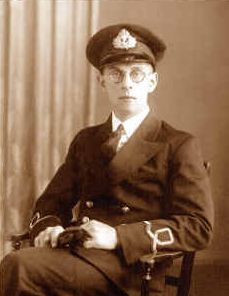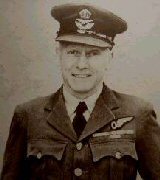Related Research Articles

Leonard Verdi Goldsworthy,, known as Leon Goldsworthy, was a distinguished Australian bomb and mine specialist in the Second World War and a recipient of the George Cross, the highest gallantry award for actions which are "not in the face of the enemy" that can be awarded to people of British or Commonwealth nations. He was awarded the GC for defusing four German ground mines, three magnetic mines and one acoustic mine under harrowing circumstances over a period of ten months.
Herbert John Leslie Barefoot, GC was a British Army officer and a recipient of the George Cross, the highest award for gallantry for actions not involving direct enemy action granted to British military personnel.
Colonel Bertram Stuart Trevelyan Archer,, known as Stuart Archer, was a recipient of the George Cross, the highest British and Commonwealth award for gallantry not in the face of the enemy. On 3 February 2015 Archer became the first recipient of the Victoria Cross or the George Cross to reach 100 years of age.
Michael Floud Blaney, GC, known as Max Blaney, was posthumously awarded the George Cross for defusing enemy bombs during the Blitz in 1940.

Lieutenant-Commander John Bridge, was a British bomb disposal expert of the Royal Navy Volunteer Reserve during the Second World War and a recipient of the George Cross. He was the first person to be awarded a Bar to the George Medal.
John Herbert Babington, was a British teacher and Royal Navy officer who was awarded the George Cross for "great gallantry and undaunted devotion to duty" in defusing bombs during World War II.

Alexander Fraser Campbell, GC, known as Sandy Campbell, was a British Army officer of the Royal Engineers who was posthumously awarded the George Cross for conspicuous gallantry in defusing a bomb in October 1940.
Michael Gibson, GC was a British Army soldier who was posthumously awarded the George Cross for the conspicuous gallantry he displayed in Coventry on 14 September 1940 in defusing a large unexploded bomb.
Lieutenant-Commander Richard John Hammersley Ryan, GC was a Royal Navy officer who was posthumously awarded the George Cross along with Chief Petty Officer Reginald Vincent Ellingworth for the "great gallantry and undaunted devotion to duty" they displayed while attempting to defuse a mine which had fallen on Dagenham in Essex on 21 September 1940.

Wing Commander Hubert Dinwoodie, was an officer in the Royal Air Force and a recipient of the George Cross shortly after the end of the Second World War for defusing bombs in Germany in 1946.
Arthur Douglas Merriman, was a government scientist with the Ministry of Supply, a British Army officer, and a recipient of the George Cross.
William Ewart Hiscock, was a Royal Navy officer who was awarded the George Cross for the "great gallantry and undaunted devotion" he displayed in September 1941 in attempting to defuse a novel Italian 'Torpedo Machine' in St George's Bay, Malta, during the Second World War.
Stephen John Tuckwell, GC was a sailor in the Royal Navy who awarded the George Cross for his "great gallantry and undaunted devotion to duty" in bomb disposal work during the Blitz of late 1940. He was attached to HMS Vernon and rendered many unexploded devices safe, including several parachute mines which fell onto the bank of the River Roding in Essex.

Peter Victor Danckwerts, was a chemical engineer who pioneered the concept of the residence time distribution. In 1940, during the Second World War, he was awarded the George Cross for his work in defusing Parachute mines. He later became Shell Professor of Chemical Engineering at the University of Cambridge and a Fellow of Pembroke College, Cambridge.
Ernest Oliver Gidden,, known as Mick Gidden, was awarded the George Cross for the "great gallantry and undaunted devotion to duty" he showed while defusing mines and bombs during the Blitz in London. He served at HMS President with the Royal Navy Volunteer Reserve and was cited for making safe a mine that had fallen on Hungerford Bridge on 17 April 1941.
Bennett Southwell, GC was a member of a Royal Navy team carrying out bomb disposal when he was killed during the London blitz. He was awarded a posthumous George Cross.
Lieutenant Commander George Herbert Goodman, of the Royal Navy Volunteer Reserve was awarded the George Cross for the "great gallantry and undaunted devotion to duty" he showed on 15 January 1942 in defusing an Italian circling torpedo.
Captain John Gamon was an English World War I flying ace credited with seven aerial victories.
Captain George William Francis Darvill was an English World War I flying ace credited with nine aerial victories.
Lieutenant Commander John Bryan Peter Duppa-Miller, GC, born John Bryan Peter Miller, was a Royal Navy officer who was awarded the George Cross for his "great gallantry and undaunted devotion to duty" in bomb disposal work during the Blitz of late 1940. He was attached to HMS Vernon and rendered safe many unexploded devices safe, including several parachute mines that fell onto the bank of the River Roding in Essex.